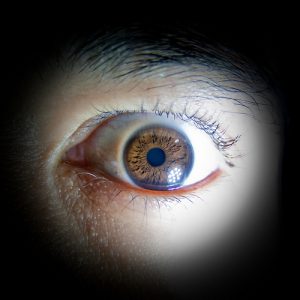How to identify problems with your vision from these common symptoms.
It is no secret that our vision is one of the most intricate, complex senses that we have. While our eyes may be small compared to most of our other organs, their structure is incredibly complex. Not only do they work together to perceive depth, enabling us to judge distance and the size of objects, but they also work with the brain, muscles, and nerves to produce complicated visual images and messages.
 However, given all of the complex and detailed intricacies that go into forming the images that we see in front of us on a day-to-day basis, it is easy to understand why just as many things can go into distorting or disrupting our vision.
However, given all of the complex and detailed intricacies that go into forming the images that we see in front of us on a day-to-day basis, it is easy to understand why just as many things can go into distorting or disrupting our vision.
Whether you are someone who is lucky enough to have perfect 20/20 vision, or you are a long-time wearer of corrective lenses, nearly everyone at one point or another has experienced some sort of vision problem, from a minor case of pink eye to the onset of cataracts as we begin to age. While some problems may be able to be treated with a simple prescription or a few eye drops, others could lead to much more serious problems if not addressed promptly.
Here is some basic information on how to identify some common eye problems through the following symptoms:
Cloudy Vision
Many people will often experience clouded, blurry vision when they first wake up in the morning or when their eyes are dry. However, frequent cloudy vision is one of the first few signs of cataracts. This vision condition is often a result of clouding of the eye’s normally clear lens with age. Cataracts can cause progressively blurred vision problems as time goes by.
Floaters
Eye floaters are dark or opaque spots that move across the field of vision. They are usually caused by the presence of non-transparent substances in the jelly-like substance in the eye, called vitreous. While many people will often confuse these simple spots as dust that is floating across or in front of the eye, they are actually within the eyeball and cannot be eliminated simply by rubbing the eye or putting in eye drops. New floaters may be a sign of a retinal tear, which may lead to a retinal detachment. Therefore, new floaters should be evaluated promptly by your eye care rpovider.
Distorted Vision
There are many different reasons why someone would experience long-term blurry or distorted vision. Most commonly, it is the result of a simple refractive error, which can cause the light to be focused at some spot other than where it needs to be focused, on the retina. Astigmatism can lie within this particular category of vision problems. Another culprit of distorted vision is macular degeneration, which can occur with age, but increases in frequency with age. Macular degeneration causes one to lose central vision and see objects toward the middle of their field of view is warped.
If you or someone you know is experiencing one of these common vision problems, it is important that you make an appointment with an eye care professional to ensure that the problem does not develop into something more serious.
Image: Source